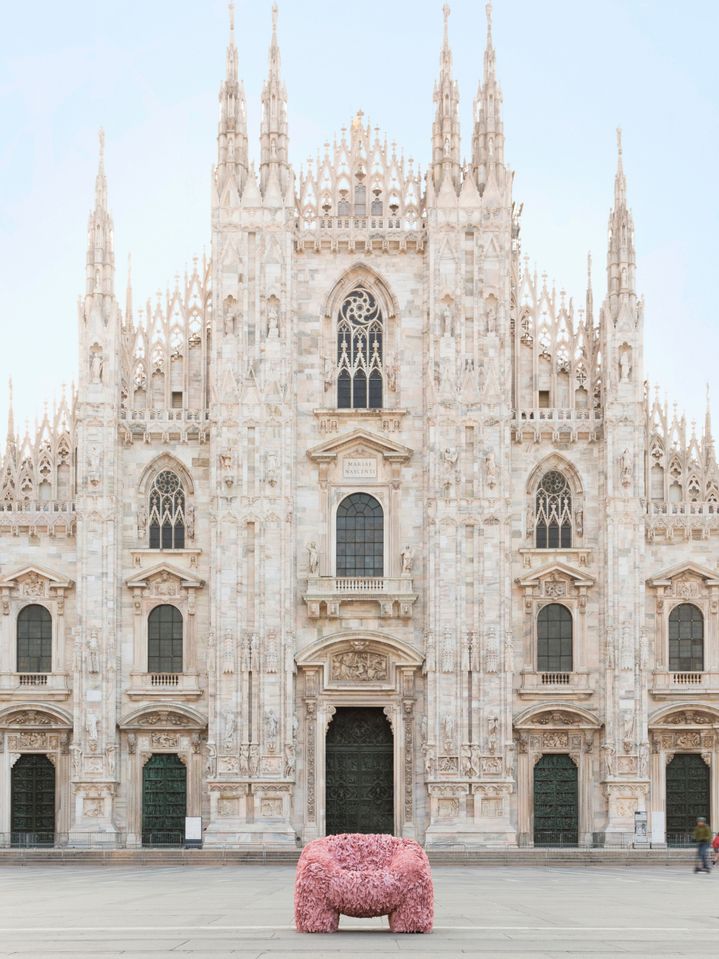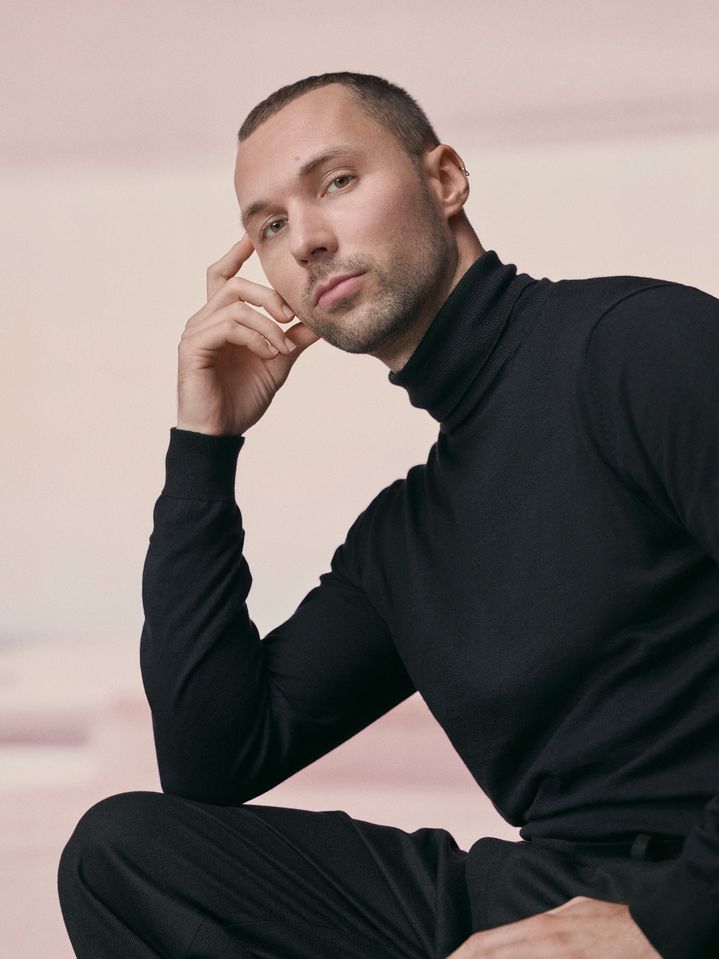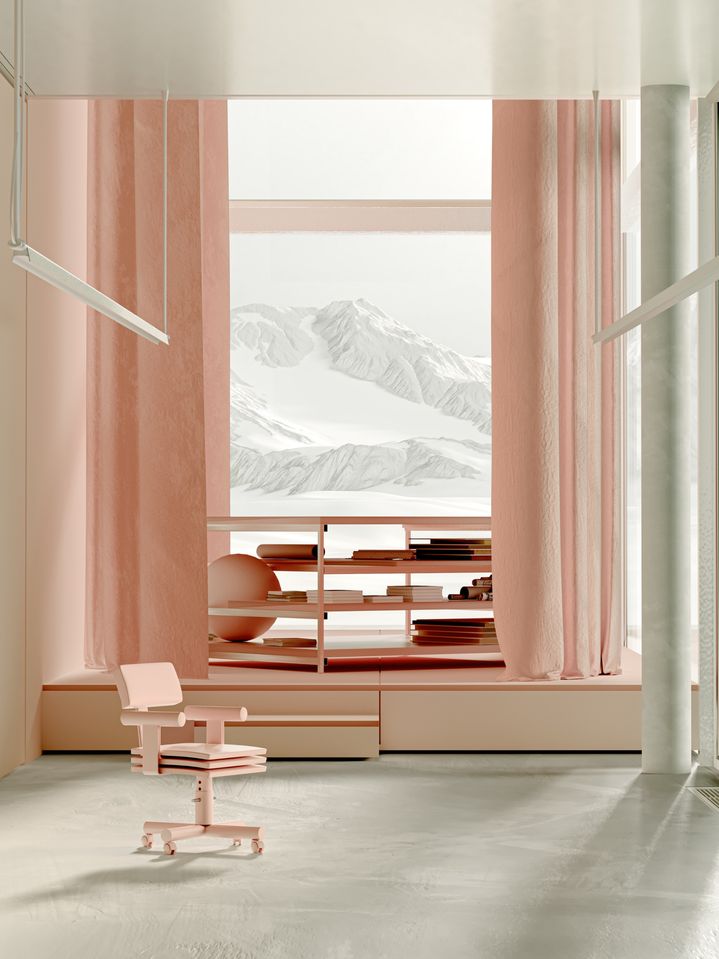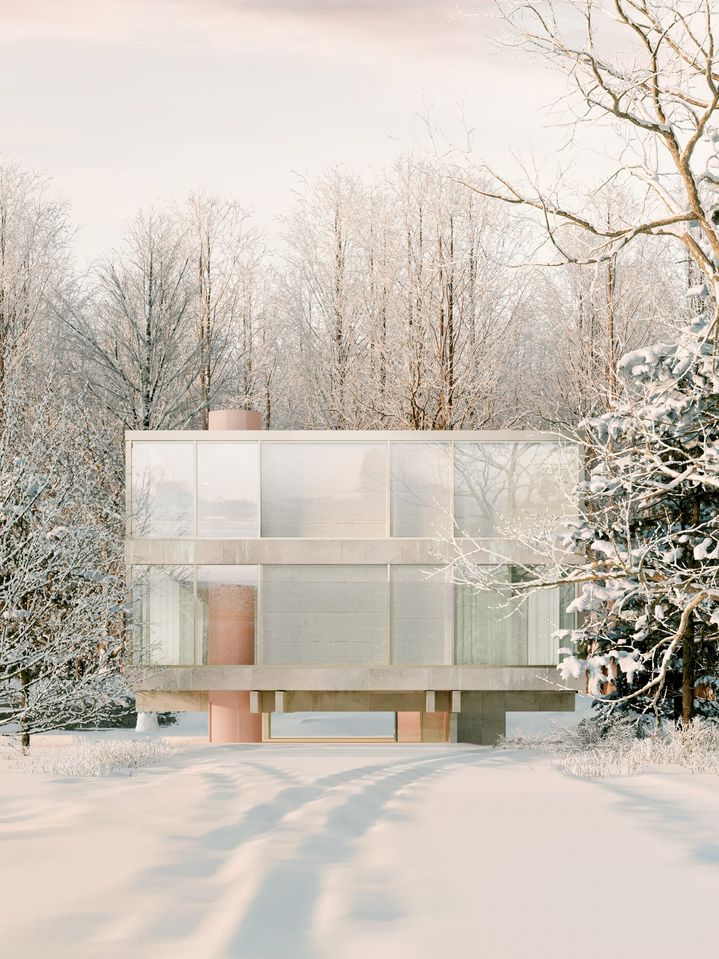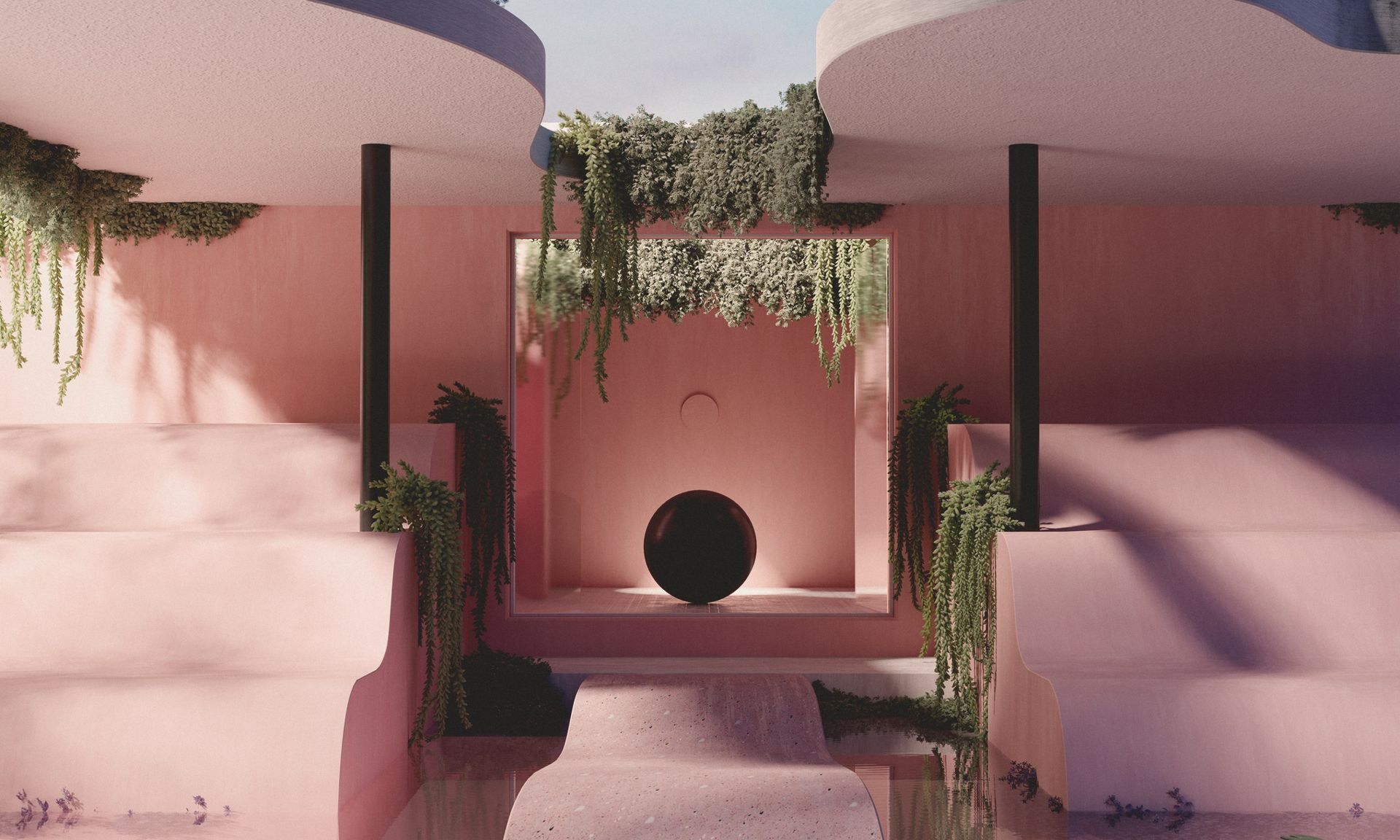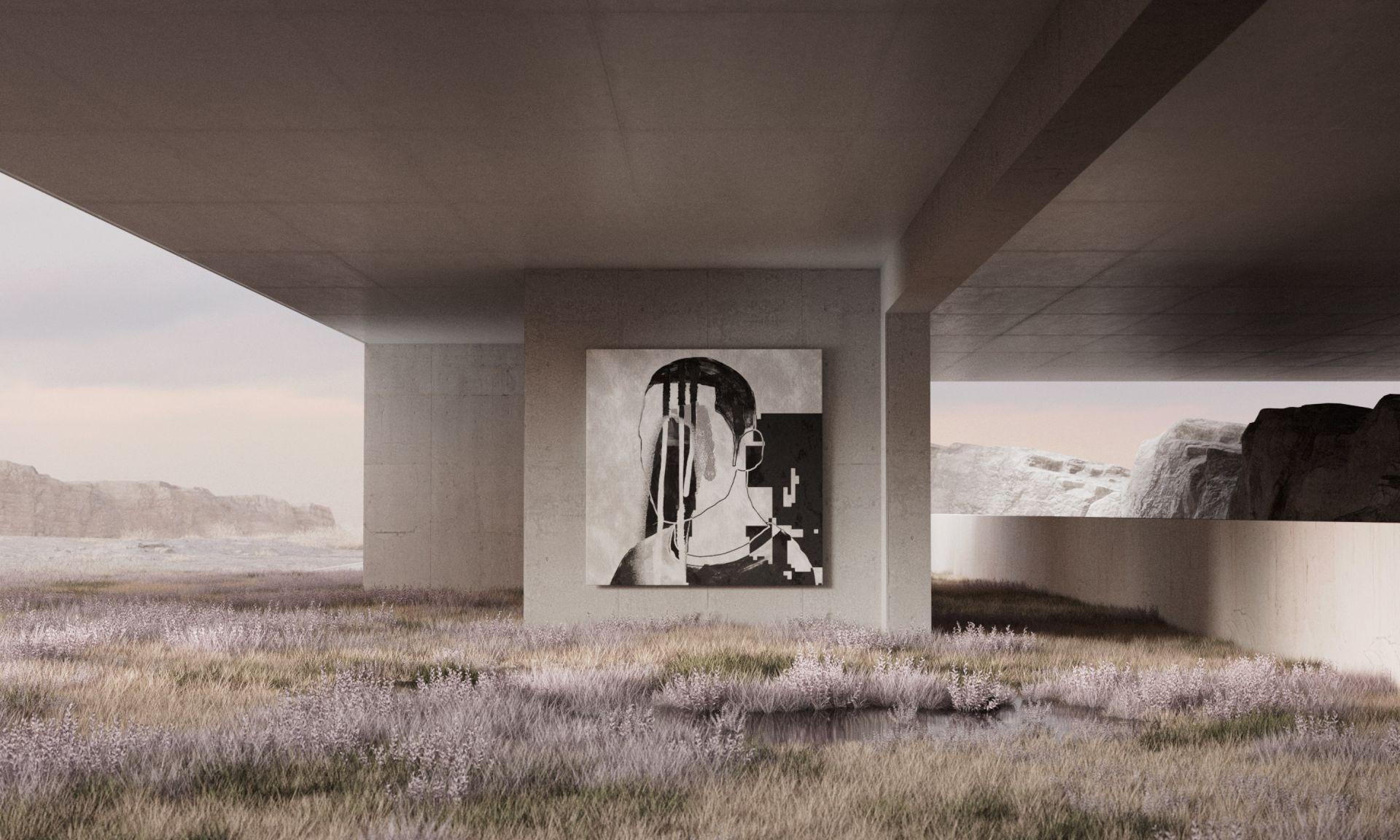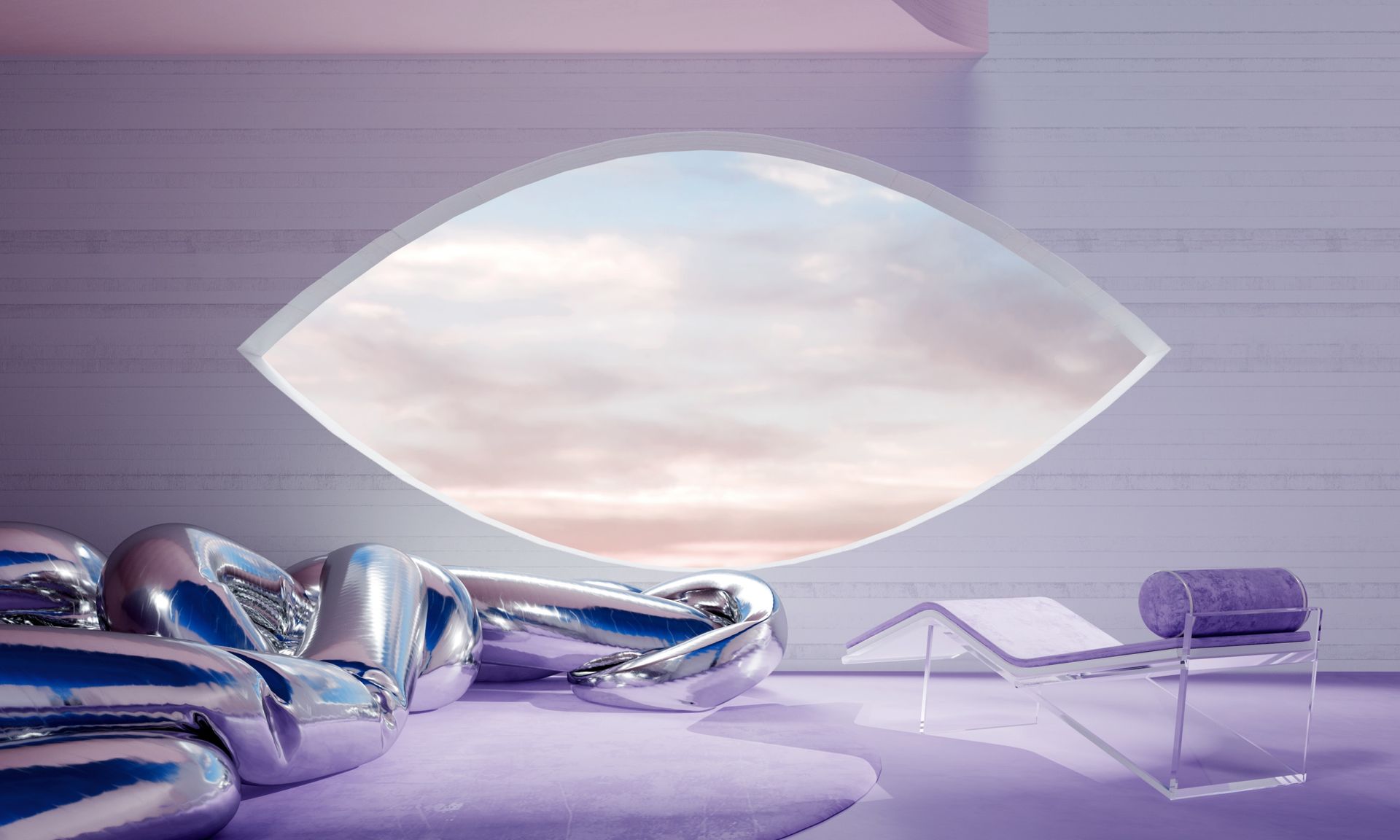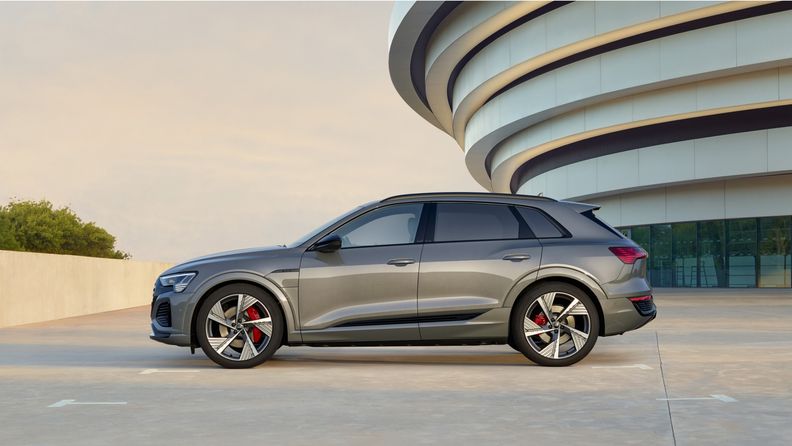A designer between worlds
¹The vehicle mentioned is a concept vehicle and is not available as a series vehicle.
¹The vehicle mentioned is a concept vehicle and is not available as a series vehicle.
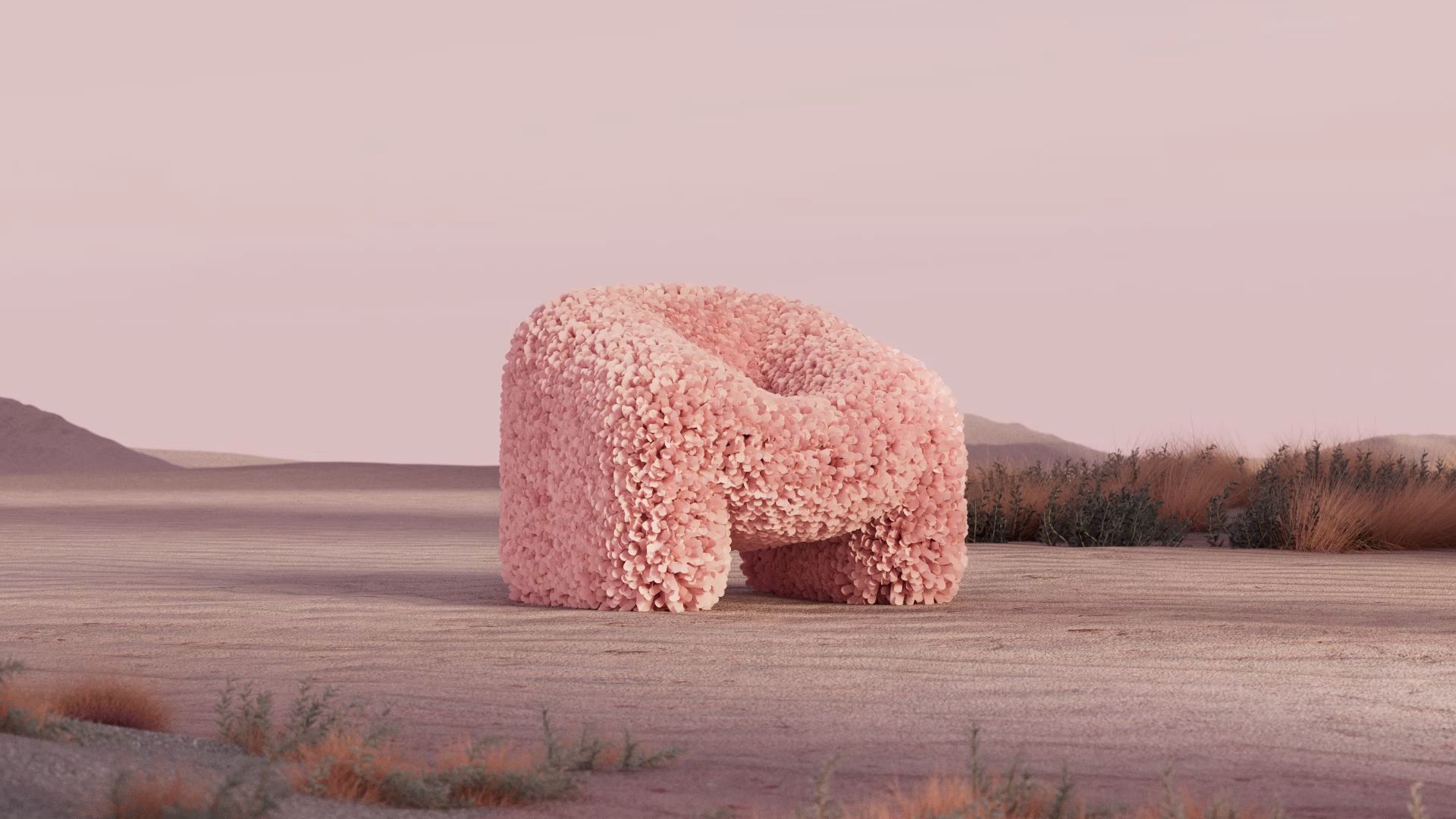
The designer’s craft, says Andrés Reisinger, goes far beyond the aesthetic. “Design has the potential to create transformation, change the world around us and shape the future.” Consciously perceiving today, interpreting it and shaping tomorrow: in the process, Andrés Reisinger blurs the boundary between fiction and reality and the relationship between virtual and physical space. For many, this makes him one of the most disruptive and important artists and designers of our time.
In 2019, the Argentinean native, who now lives in Barcelona, was selected as one of the ADC One Club Young Guns, and a year later he was among the Forbes 30 Under 30 in Europe. The international media consider him to be one of the visionary artists and designers shaping our world with their work. At the beginning of last year, Reisinger put ten digital objects up for auction as part of “The Shipping” on the NFT marketplace Nifty Gateway; five of the pieces of furniture have a physical counterpart, while all ten can be used digitally in any “open world”. Among the pieces was the Hortensia Chair, which made Reisinger famous the year before.
At that time, the design of Hortensia seemed to be from another world, a pastel cloud dotted with rosy petals. When Andrès Reisinger posted the design on his Instagram account in July 2018, it instantly became a success and started receiving orders. Only: the piece of furniture was a 3D rendering. To respond to the public’s desire, Reisinger set out to bring the chair into the real world. The viral hit became a true statement piece and Andrés Reisinger became a star. Today, the armchair with over 30,000 laser-cut petals can not only be configured and purchased online, it has also been exhibited in several galleries and museums worldwide.
Reisinger is an all-rounder who uses collaborations to test and push the boundaries of what is possible. This can be seen in his cooperation with Audi on the Audi grandsphere concept¹ today and the short film Arcadia presented in 2021 – an interdisciplinary NFT the artist and designer created together with the musician and Grammy Award winner André Allen Anjos and the poet Arch Hades. It is remarkable how naturally Reisinger blurs the seemingly universal understanding of the imaginary and the real and with what ease he moves between the analogue and the digital world. When asked what the social idea behind his works is, Reisinger once said: “The idea of a society that can live in a digital and a physical world at the same time. But more than the vision of a society, it is the vision of a human experience.”
¹The vehicle mentioned is a concept vehicle and is not available as a series vehicle.
¹The vehicle mentioned is a concept vehicle and is not available as a series vehicle.
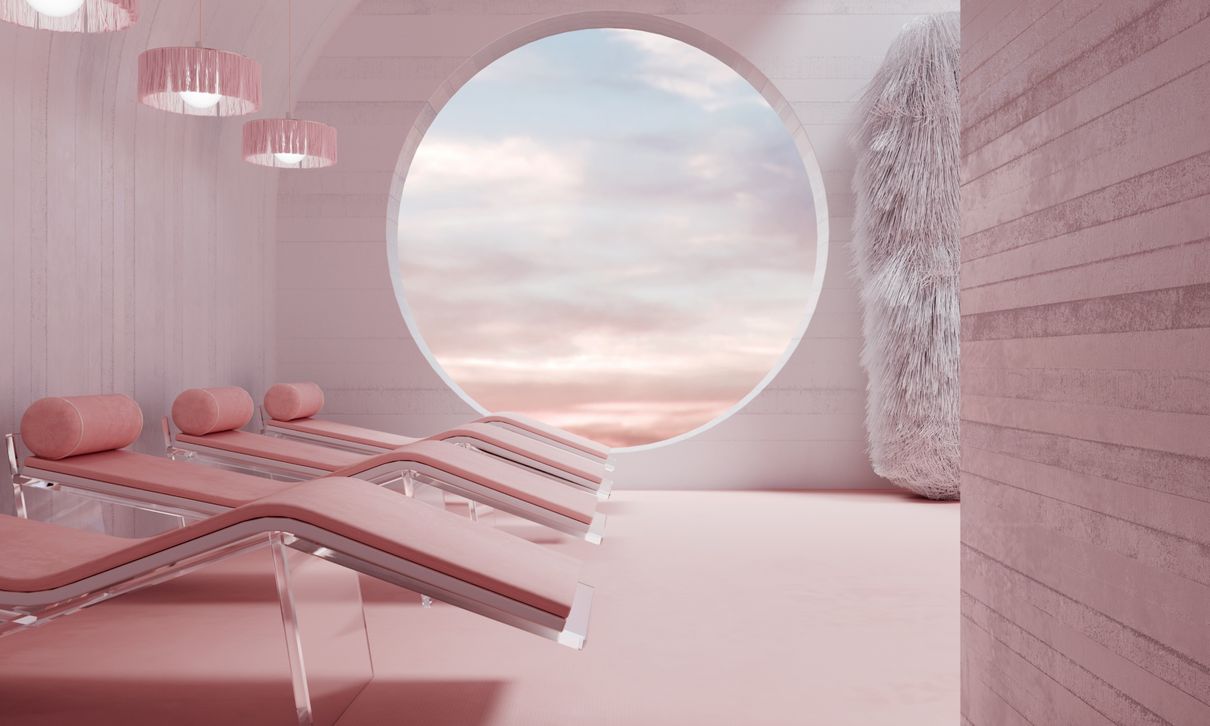
To understand what Reisinger means, you first need to know why the artist so often uses the colour pink and organic forms in his works. Reisinger deals intensively with the connection between man and nature. He says that his main sources of inspiration have always been crystals, flowers and the shape and texture of the human body. In a digital world, the relationship to the living is more important than ever, Reisinger says. The second aspect that guides Reisinger in his processes is the emotion evoked when looking at his works. Contradictions play a major role here: Reisinger’s designs are conceptually and intensely modern, but at the same time accessible. The landscapes are surreal, but also convey a comforting feeling and a subtle sensitivity. It is precisely this interference between strangeness and familiarity that makes Reisinger’s designs so unique. Reisinger often speaks about ‘natural materials’, which at first glance seems confusingly analogue. What he means by this is the feeling that the materials evoke, as in the digital ‘Winter House’, which he designed together with the Spanish architect Alba de la Fuente. This is a house you want to live in and spend time in. It almost does not matter whether it is a real or virtual space. For Reisinger, it is clear what will move us in the future: ideas that touch us without us having to touch them. The project is a first step towards expanding his Reisinger Studio as a metaverse architectural firm.
“In the digital world, everything can be successful. If you can dream it, you can create it.”
He founded his studio in Barcelona in 2018. And it is precisely there, in his studio in the creative district of Poblenou, that the digital composition for which the designer got to know the Audi grandsphere concept¹ so intensively is created. For Audi, the future is a space full of possibilities for ideas and innovations that, conceived from the inside out, focuses on people. Andrés Reisinger abstracts the ideas of comfort, relaxation and immersive experiences. He uses his understanding of textures, shapes and light to blur the boundaries between reality and fiction. Design, says Reisinger, has the freedom to create, shape and reshape things. He does not see a limit to what is possible: “In the digital world, everything can be successful. If you can dream it, you can create it.”
Audi will present what Andrés Reisinger dreamed and created as part of the Audi grandsphere concept¹ on the @audiofficial social media channels and at Design Miami/ from 28 November.
¹The vehicle mentioned is a concept vehicle and is not available as a series vehicle.
¹The vehicle mentioned is a concept vehicle and is not available as a series vehicle.
